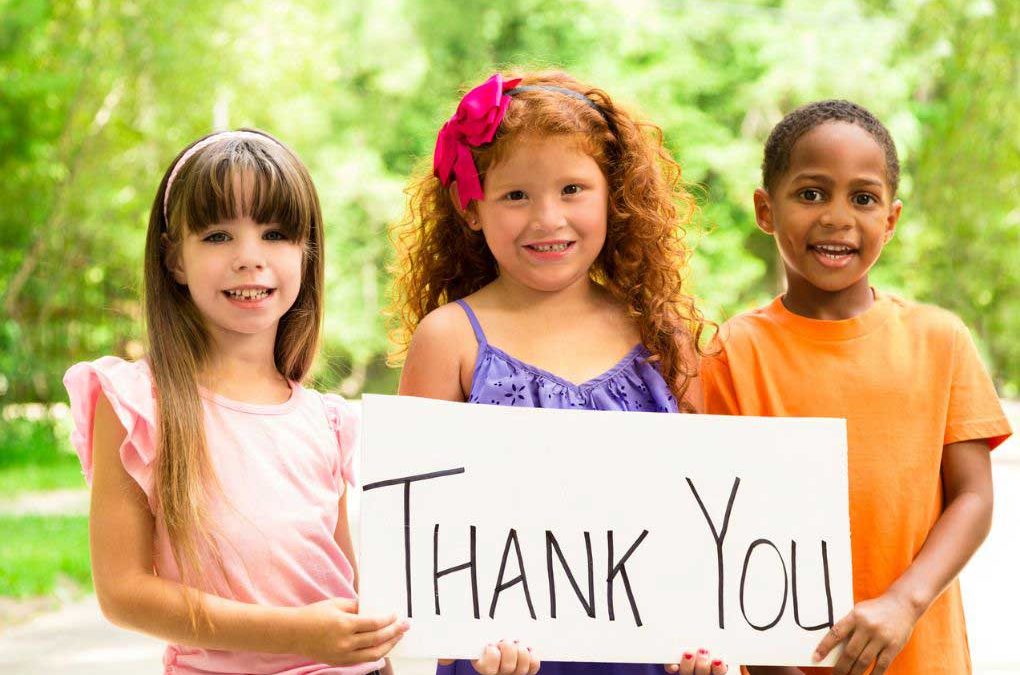One of the most common concerns that I have heard from parents is that this generation of children can sometimes seem to be amazingly ungrateful for all that is done for them. We’ve all met kids who want everything their way and expect things to be provided for them on a silver platter. With the overwhelming abundance of material possessions and privileges, the majority of kids in the Western World enjoy, it is not hard to see why so many of them end up feeling entitled.
I am sure we have all witnessed what happens at birthday parties these days where games like pass the parcel have been changed, so no one loses, and everyone wins a prize. This excessive sense of entitlement is creating significant mental health problems for our kids and decreasing their levels of resilience.
Developing a sense of gratitude emphasises the fact that all those toys, belongings, opportunities and creature comforts don’t just magically appear out of thin air. When children pause to recognise and appreciate that the things they are given and the opportunities they are presented with have been given to them by someone else, this facilitates an understanding of how interconnected we all are.
This positive focus balances out our brain’s natural tendency to focus on what’s wrong and what we are lacking. This is our brain’s way of keeping us safe, but when we focus on all the negatives in our lives, we create a mindset of lack and limitation which has substantial implications for our psychological wellbeing and mental health.
Over 25 years of research by Robert Emmons has shown that consistently practising gratitude is associated with higher psychological wellbeing and a range of other positive benefits such as reduced levels of depression, stronger social bonds and friendships, less loneliness, lower stress levels, a stronger immune system, better sleep, being more generous, kind and compassionate, increased resilience and being less likely to take drugs.
Gratitude, and having a grateful disposition, is something that can be learned and developed throughout life. As parents, we need to consciously create situations, routines and habits that cultivate gratitude in our children, so that it becomes a regular part of their daily lives.
Parents I have worked with have found the following three strategies useful when fostering gratitude in their children.
- Model gratitude
Our kids want to be like us. The example we set, especially when they are little, becomes indelibly etched in their minds. We provide a model for what to say and do in different situations and contexts. When we express our gratitude in words, by writing notes or letters or through acts of reciprocity, these all teach children how to be grateful. Doing this is a way to explicitly illustrate your appreciation for all the good things in your life and shows your kids that being thankful is an attitude that is valued by you.
- Instil manners
When we model the use of polite manners, saying please and thank you for things, this shows our children that we don’t believe we are simply entitled to everything we want, but in fact, appreciate all the good things that come into our lives.
- Create a gratitude jar or box
This is an adapted version of keeping a gratitude journal. A family may decide to have a beautiful box or jar in the kitchen or in another central part of the house. Place brightly coloured sticky notes and pens next to the jar or box and whenever family members are feeling grateful for someone or something, they write it on a sticky note and add it to the jar or box. Then the family can choose when to read them out together – this could be done every week, every month or at the end of the year to celebrate all the good that has happened throughout the year.
As parents, we need to be modelling these behaviours so gratitude becomes an engrained attitude that can boost our children’s psychological wellbeing throughout their lives.
Kari Sutton is an educator, speaker and author who has helped over 25,000 children, parents, and educators with evidence-based strategies, tools and approaches to foster children’s positive mental health and plant the seeds of resilience, emotional wellbeing and mental fitness in our children.
Website: www.karisutton.com
Email: kari@karisutton.com




